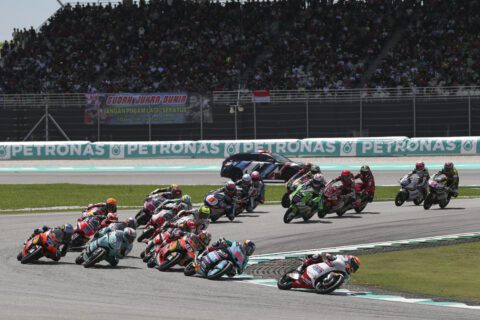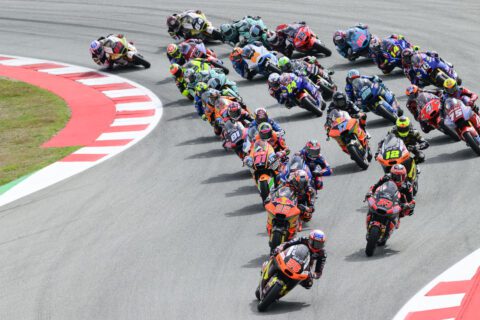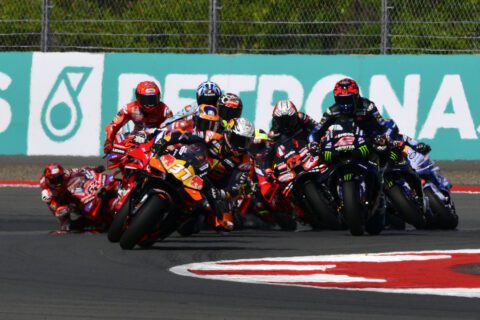THE ENTERTAINMENT BUSINESS
At its congress in Lisbon recently, the governing body of world motorcycle racing, the FIM, thought it would explore what was going wrong with the sport and invited a panel of luminaries to pontificate on the problem and, perhaps, suggest a solution.
The very assumption that something isn't working does bear questioning. And the most relevant question is: 'What are we expecting?' Because until we know what we are expecting then it is difficult to judge whether we are succeeding or not and, if the latter, what do we do about it.
So let's make an assumption. And that is that that the governing body thinksthe sport is waning in popularity, there is less money coming in and that the promoters, who have been licenced to ensure that just the opposite takes place, aren't doing a very good job.
And they could be right because the privately-owned companies who own the marketing rights to both MotoGP and World Superbikes do have an overriding duty - to their shareholders! Put very simply that duty, to people who have probably never seen a motorbike race in their lives, is to make them more money.
Our sport is seen by the people who follow it as just that - a sport. But outside of club events it is a business and like many other "sports" it often struggles to reconcile the two. Governing bodies, whose duty is to ensure its survival and growth, are often made up by people from the grass roots. Salt of the earth and absolutely vital but completely out of their depth when dealing with the professional side.
They are in the entertainment business, competing for people's attention and, dare we mention it, their money. They often have to deal with the Great God called television and the demands it makes because that is where the money is or, at least, a necessary route to getting it.
Many sports have had to change dramatically, cricket being a prime example. The growth of twenty20 is an anathema to the purists for whom the five-day game is everything. But the possibility of playing for five days and then having to declare a draw takes up too much tv time and is incomprehensible to a growing number of fans to whom instant gratification is increasingly important.
Have we yet grasped that we are in the entertainment business? Has our sport changed enough for a highly-competitive market place? Has it changed at all or is it still basically the same as it was 50 years ago?
We have no divine right to survive, we are in fierce competition for people's time and money - both in increasingly short supply - and in a world fixated with footballers and Z-list celebrities (which are one and the same) we have to build our own heroes to become household names.
So we need clever, marketing-savvy people; we need investment in tomorrow's stars from the promoters; we need those same people to regard the media as an opportunity to be embraced at every opportunity, not a threat to be avoided at all costs; we need the media itself to promote and embrace change; we need to be less interested in the technical and the formulaic and more in the excitement and the people.
In short, let's recognise the business we are all in.








![Shane Byrne, Monstermob Ducati, 2003 WorldSBK, action [Gold & Goose]](https://bikesportnews.com/wp-content/uploads/2025/07/Shane-Byrne-Monstermob-Ducati-2003-WorldSBK-action-Gold-Goose-480x272.jpg)

